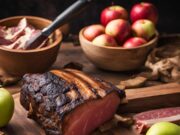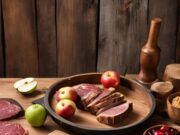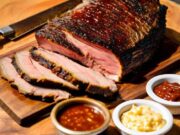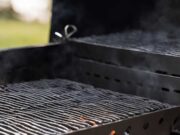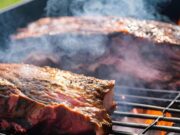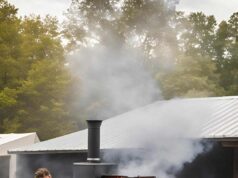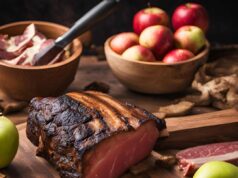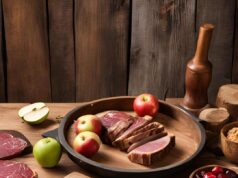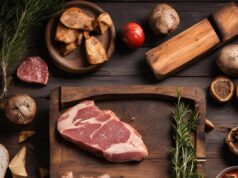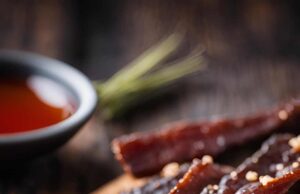- Key Takeaways:
- Understanding Charcoal and Gas Grills
- Pros and Cons of Charcoal Grills
- Pros and Cons of Gas Grills
- Comparing Cooking Performance: Charcoal vs. Gas
- Key Considerations for Choosing Your Grill
- Frequently Asked Questions (FAQs)
- Final Thoughts: What Should You Choose?
- Frequently Asked Questions
Selecting the right grill is crucial for optimizing your outdoor cooking experience, whether you are hosting a summer BBQ or enjoying a peaceful evening with family.
In the ongoing debate between charcoal and gas grilling, it is important to carefully consider the advantages and disadvantages of each option.
This guide will outline the key differences in flavor, convenience, and maintenance, assisting you in determining which grill aligns best with your cooking style and needs.
Prepare to enhance your understanding of grilling.
Key Takeaways:
- Charcoal and gas grills offer different cooking experiences, with charcoal providing a traditional smoky flavor and gas offering convenience.
- Charcoal grills offer a more authentic and versatile cooking experience, but require more time and effort to use and maintain.
- Gas grills provide faster and easier cooking with less maintenance, but may lack the traditional smoky flavor of charcoal.
Understanding Charcoal and Gas Grills
Charcoal and gas grills represent two distinct approaches to outdoor cooking, each offering unique benefits and features that cater to your specific grilling style and preferences.
Charcoal grills primarily utilize briquettes, which ignite easily and burn steadily, producing an authentic smoky flavor that enhances the taste of various meats and vegetables. This traditional method appeals to those who appreciate the depth and richness that comes from cooking over real charcoal, making it ideal for creating classic barbecue recipes.
In contrast, gas grills rely on propane tanks, providing unmatched convenience and temperature control for quick and efficient cooking sessions. Their straightforward ignition and adjustable flames simplify the grilling process, allowing you to focus on flavor without the wait.
Each type of grill has its devoted followers, and both offer versatile grilling techniques suitable for backyard barbecues or intimate cookouts.
Pros and Cons of Charcoal Grills
Charcoal grills have garnered a dedicated following among grilling enthusiasts because of their capacity to produce intense flavors, especially when cooking meats such as steak. However, it is important for you to carefully consider the advantages and disadvantages associated with using a charcoal grill.
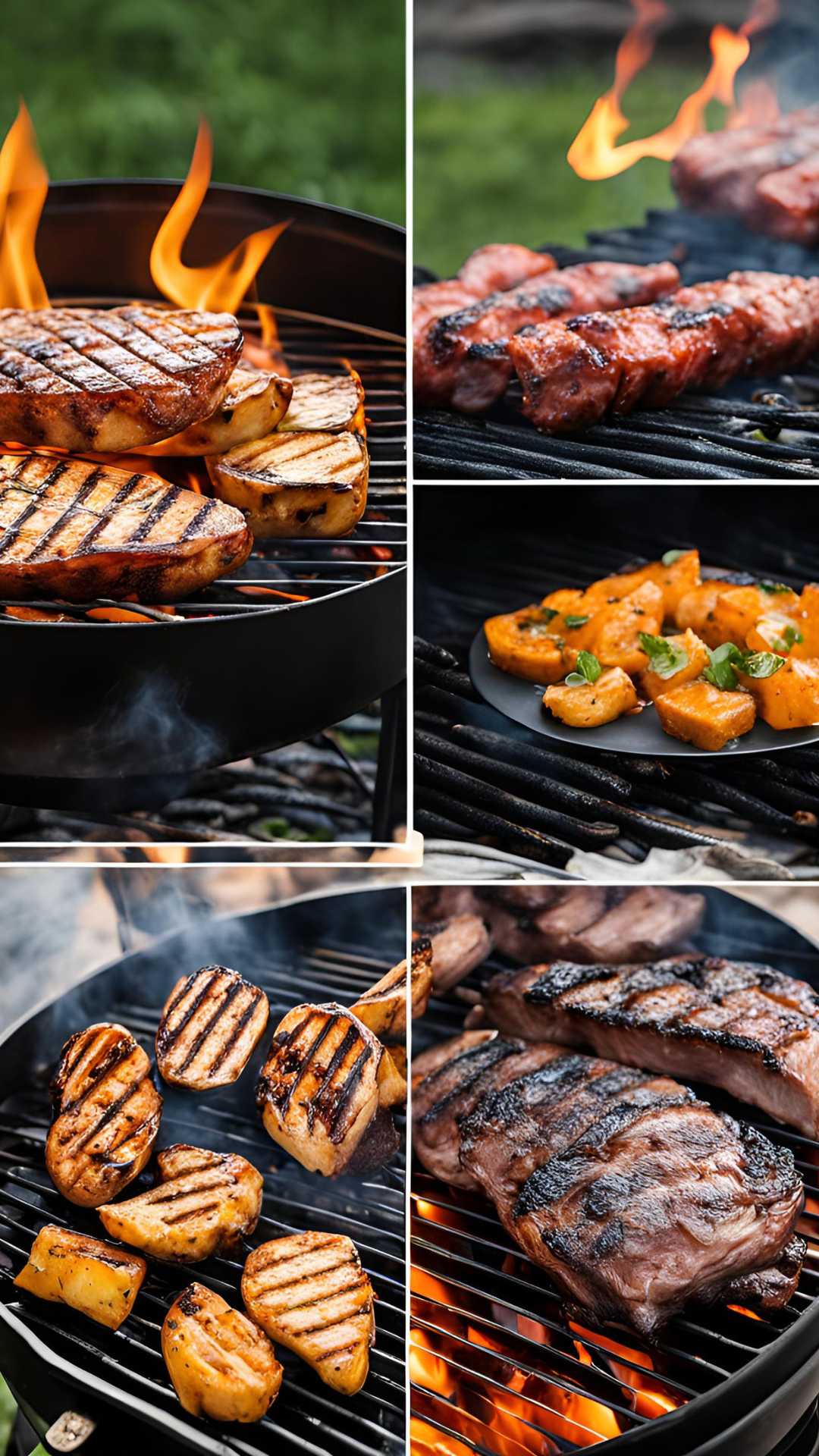
Pros and Cons of Gas Grills
Gas grills are a popular choice among home cooks due to their convenience and efficiency. They enable quick setup and precise temperature control.
However, there are notable disadvantages that may deter some grilling enthusiasts from choosing this option.
Comparing Cooking Performance: Charcoal vs. Gas
When considering cooking performance, both charcoal and gas grills present distinct advantages that can greatly impact the results of your grilled dishes. This is especially true regarding temperature control and the ability to achieve that ideal sear on meats such as ribeye or porterhouse steak.
Key Considerations for Choosing Your Grill
Selecting the appropriate grill for your needs requires a thorough evaluation of several essential factors, including the type of fuel, cooking style, desired flavor outcomes, budget, and maintenance requirements. These considerations will ultimately dictate your grilling experience and help you make an informed decision.
Flavor and Cooking Techniques
The flavor profile and cooking techniques of charcoal and gas grills differ significantly, impacting not only the taste of your food but also the overall grilling experience.
Charcoal grilling typically imparts a distinct smoky flavor that many enthusiasts value, as the combustion of coal generates both heat and smoke. This process facilitates the development of charring compounds, which are essential for creating that desirable crispy exterior on meats.
In contrast, gas grills provide a more controlled cooking style that relies on direct heat and precise temperature regulation. While they may not deliver the pronounced smoky flavor characteristic of charcoal, gas grilling can still yield delicious results, especially when using wood chips or smoker boxes, enabling you to experiment with various aromatic profiles.
Understanding these differences can enhance your overall grilling journey, allowing you to make informed choices that align with your culinary preferences.
Speed and Convenience
One of the most appealing aspects of gas grills is their speed and convenience, making them an attractive option for individuals who prioritize a hassle-free cooking process over the traditional grilling experience.
With a gas grill, the setup time is minimal—simply connect the propane tank, ignite the burners, and it’s ready to use in minutes. This reduction in preparation time allows you to spend more time enjoying the outdoors with friends and family.
Gas grills offer superior heat control, enabling you to easily adjust the temperature for perfect cooking results. Unlike charcoal grills, which can take time to reach the desired heat level and require constant monitoring, the straightforward dial adjustments of a gas grill simplify the entire cooking process.
This ease of use makes it ideal for those who want a quick meal without sacrificing flavor or quality.
Cost and Maintenance
When evaluating the financial implications of your grilling choice, it’s important to recognize that both charcoal and gas grills come with distinct costs and maintenance requirements that can influence your long-term grilling satisfaction.
The initial purchase price of these grills can vary considerably. Charcoal models are often more affordable upfront, while gas grills typically require a higher initial investment. However, it is essential to look beyond the purchase price to fully understand the total costs involved. Fuel expenses are also a critical component of the overall cost; while charcoal may be cheaper per use, frequent grilling could result in higher expenditures over time.
In terms of maintenance, gas grills generally demand more attention to keep their burners and hoses in optimal condition, whereas charcoal grills often require substantial cleanup after each use, which contributes to the overall maintenance effort. By carefully considering these factors, you can determine which grilling option aligns best with your budget and lifestyle.
Frequently Asked Questions (FAQs)
This section addresses frequently asked questions regarding charcoal and gas grills, aiming to clarify common queries and provide valuable tips for both beginner and experienced grillers.
By understanding these essential aspects, you can enhance your outdoor cooking experience, ensuring that each meal is flavorful and perfectly cooked. Whether you seek the best methods for lighting charcoal or tips for adjusting gas flow, the goal is to equip you with insights that facilitate successful grilling sessions.
This discussion will cover the unique benefits and drawbacks of each grill type, offering practical advice that aligns with your personal preferences and culinary goals.
Let’s explore the most pressing questions that often arise in the world of grilling.
Final Thoughts: What Should You Choose?
The choice between a charcoal or gas grill ultimately comes down to your personal preferences, cooking style, and the specific flavors you wish to achieve in your grilled dishes.
Each grilling method presents its own unique characteristics, contributing to a diverse array of flavors that can enhance your culinary experience. For example, charcoal grilling is renowned for imparting a rich, smoky flavor that many enthusiasts consider unmatched by gas grilling. Conversely, gas grills offer convenience and precision, providing consistent cooking temperatures that appeal to those seeking efficiency in outdoor cooking.
Whether you lean towards the traditional approach of charcoal or the modern practicality of gas, understanding these distinctions can help you curate the best grilling experience tailored to your taste preferences.
Frequently Asked Questions
What are the main differences between charcoal and gas grills?
Charcoal grills use charcoal as their main source of heat, while gas grills use propane or natural gas. Charcoal grills are typically more affordable, but require more time and effort to heat up. Gas grills are more convenient and easier to control the temperature, but can be more expensive.
What are the benefits of using a charcoal grill?
Charcoal grills provide a distinct smoky flavor to food, which many people enjoy. They also tend to reach higher temperatures, making them great for searing meats. Charcoal grills are also portable and can be used in outdoor locations without access to gas or electricity.
Why should I consider purchasing a gas grill?
Gas grills are ideal for those who value convenience and ease of use. They heat up quickly and allow for precise temperature control, making them great for cooking delicate foods. They also tend to be more durable and require less maintenance compared to charcoal grills.
Which type of grill is more cost-effective?
Charcoal grills are typically more affordable upfront, but the cost of charcoal and lighter fluid can add up over time. Gas grills may have a higher initial cost, but their fuel source tends to be more cost-effective in the long run.
Can I use both charcoal and gas on the same grill?
Yes, there are hybrid grills available that allow you to use both charcoal and gas. These grills offer the best of both worlds, providing the convenience of gas and the flavor of charcoal. However, they tend to be more expensive and may have limited cooking space for each fuel source.
Which type of grill is better for outdoor cooking?
Both charcoal and gas grills are suitable for outdoor cooking, but it ultimately depends on personal preference and needs. Charcoal grills are great for camping or outdoor events without access to gas or electricity, while gas grills are better for backyard grilling and everyday use.



